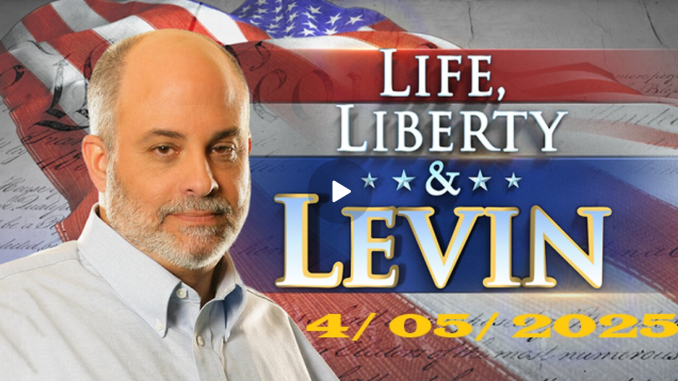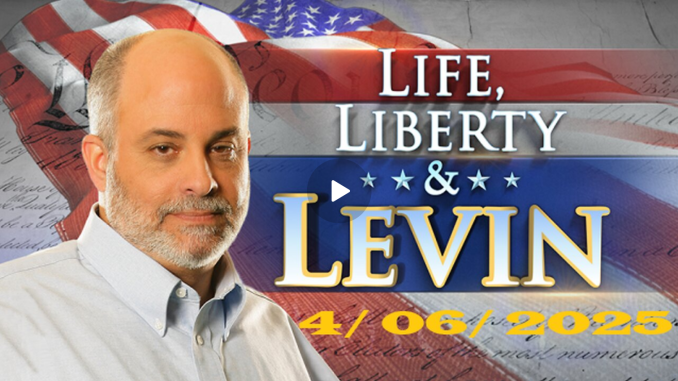Peloni: In his opening remarks, Mark explains that Trump’s proposals are the most pro-growth attempt in American history. Reform of the size of govt, regulations, the tax code, and more is all structured around manufacturing and job growth in the US. He argues further that the use of tariffs will re-industrialize America. Additionally, Mark explains that this growth is not just helpful to the economic future of the average American, but it is addressing the geopolitical need for America to re-establish a national manufacturing core which could be tapped should war with a peer power ever come to be. The combination of tax cuts with the applied tariff policy will have the twin effect of boosting domestic prosperity and addressing the problems associated with the monetizing of excessive spending of previous administrations, particularly those of the Obiden years. Mark also discusses the current state of affairs ongoing in China with Gordan Chang, and the issue of deporting college campus terror advocates with Mark Goldfeder.
April 5:
Peloni: In his opening remarks, Mark provides details demonstrating that the Trump tax plan is entirely centered towards economic growth as it contrasts with existing regressive tax code which has the effect of redistributing wealth and inhibiting growth in manufacturing and jobs. Mark discusses the issue of the tyrannical district courts with Stephen Miller, as well as the the need to abolish the court of Judge Boasberg’s court. Finally, Mark interviews Douglas Murray regarding his new book, Democracies and Death Cults, Israel and the Future of Civilization. Levin highly recommends the book, which is filled with new revelations by Murray surrounding his extensive access to the both the Gaza war and the savage slaughter which precipitated it.
April 6:
An important topic which is missing in these interviews and commentary by Levin was discussed in an important interview held on Sunday by Senior Counselor for Trade and Manufacturing, Peter Navarro. Navarro explained that the real focus of the tariff policy is to deal with the “Non-Tariff Cheating” advantaging foreign nations beyond their respective unfair tariff policies.
Notably, the move by China to raise tariffs in lieu of reforming either its tariffs or non-tariff cheating has set the stage for an even more aggressive response by the Trump administration. It should be understood that respective nations each employ various schemes such as currency manipulation, fake agricultural standards, and export subsidies to advantage their domestic economies, but these policies when viewed from the US are seen as cheating, as they have led to the theft of US manufacturing and well paying US manufacturing jobs over the years. Specifically with regards to China, it should be understood that the Chinese benefit of using slave labor and employing intellectual theft is an extreme example of this cheating which is why China’s tariffs are the highest of all nations. While this was accomplished with a compliant/complicit US political elite over decades, it has had the effect of hollowing out the US economy, and Trump means to reverse this process. Ultimately, China’s determination to maintain rather than reform its cheating scheme will lead the Trump administration to split the world into a “us” or “them” trade policy in the US, forcing nations to choose to either align with the US and not with China on a good faith basis, or to literally pay the price of failing to do so.
Importantly, Trump’s new trade policy is going to place US allies in a difficult position, with close allies facing the most difficult choices, because their economies over the years have become intricately dependent upon institutional trade practices, explained as cheating by Navarro, which has in turn come to cost the American economy thru the loss of manufacturing, jobs and wealth over the years. The relative nations will each have to identify and reform these cheating trade practices before approaching Trump with any proposals regarding the tariffs, per Navarro. As Navarro explains, this is not a negotiation, and by this I think it should be understood that is a US demand that trade policies should be reciprocal in nature, and not just on the issue of tariffs.
By forcing the relative nations to address the trade imbalance over the years, Trump may well bring manufacturing back to the US, but the skills in many instances associated with manufacturing is not so easily, ie not so quickly, resuscitated. The skill set of ship builders, for instance, does not currently exist in the US in any appreciable number, so such skill set deficiencies as these will need to be re-engineered, so to speak, which will take time. Yet as these skills are being reacquired, the manufacturing base of the US will return to America, but slowly. Also, some areas of competition are not based on skill sets but upon the mechanical devices and major ingredients which produce the desired products, such as in the case of pharmaceuticals. Addressing issues such as these will need to be included in the revolution to rebuild America which Trump has envisioned. In part, these situational deficits will be addressed by foreign manufacturers who will be building plants in America, complete with the technical advisers needed to make those plants function and flourish. But there will be some areas where the US will be dependent upon innovating their own solution to certain deficits, and this will likely include the situation surrounding the pharmaceutical dilemma.





So now we can expect the prices for the goods made in China (at least) to double…
Oh, poor, poor China!
China misses deadline to rollback reciprocal tariffs. Now they will reap the whirlwind as an additional 50% tariff is imposed as of tomorrow on all goods emanating from China, the cheater of all cheaters.